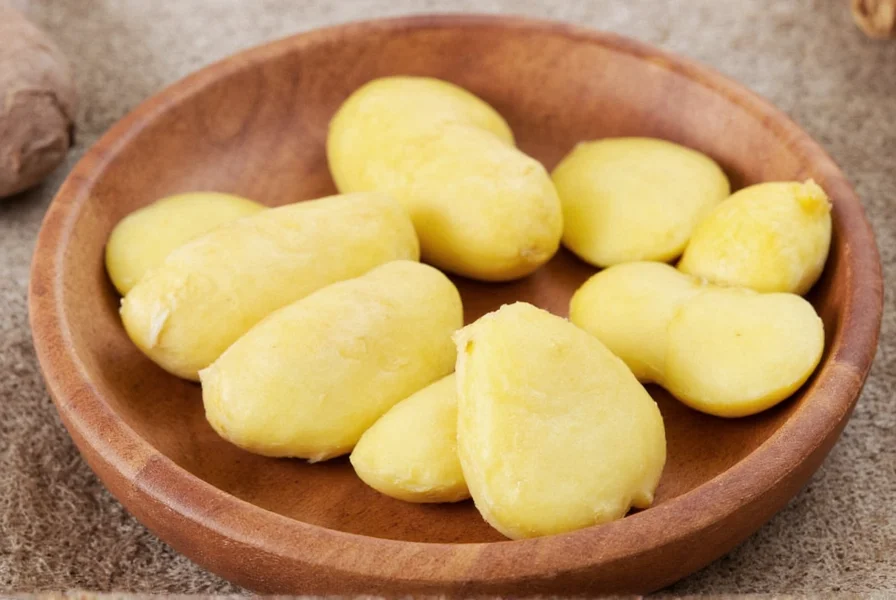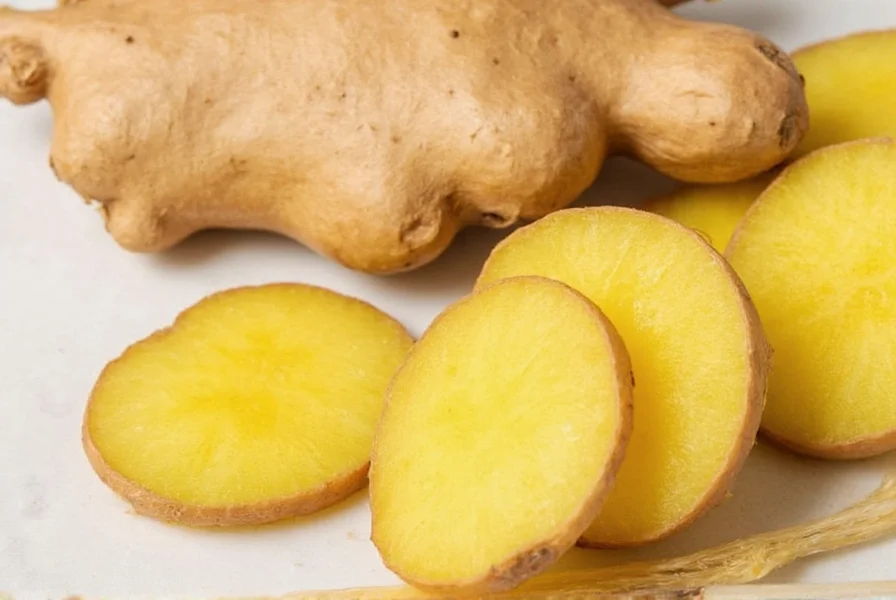Ginger has been used for centuries in traditional medicine systems for its therapeutic properties, particularly for inflammatory conditions. Modern research continues to validate many of these traditional uses, revealing the complex biochemical mechanisms behind ginger's anti-inflammatory effects.
The Science Behind Ginger's Anti-Inflammatory Properties
Ginger's primary bioactive compounds—gingerols, shogaols, paradols, and zingerone—interact with multiple inflammatory pathways in the body. These compounds work by:
- Inhibiting the production of pro-inflammatory cytokines like TNF-α and IL-6
- Suppressing COX-2 enzyme activity (similar to how NSAIDs work, but through different mechanisms)
- Reducing oxidative stress that contributes to chronic inflammation
- Modulating NF-kB signaling pathway, a key regulator of inflammation
Unlike pharmaceutical anti-inflammatories that typically target a single pathway, ginger works through multiple mechanisms simultaneously, which may explain its broad therapeutic potential with fewer side effects.
Clinical Evidence: What Research Shows
Multiple clinical studies have investigated ginger's effectiveness for various inflammatory conditions:
| Condition Studied | Study Details | Key Findings |
|---|---|---|
| Osteoarthritis | Randomized trial with 247 participants taking 500mg ginger extract daily for 12 weeks | Significant reduction in pain scores compared to placebo; 63% reported improved mobility |
| Muscle Pain | Study with 34 participants consuming 2g raw or heat-treated ginger daily for 11 days | Both forms reduced exercise-induced muscle pain by 25% compared to placebo |
| Rheumatoid Arthritis | Systematic review of 5 clinical trials involving ginger supplementation | Moderate evidence for pain reduction, but insufficient evidence for disease modification |
A 2022 meta-analysis published in Nutrients reviewed 19 clinical trials and concluded that ginger supplementation significantly reduced markers of inflammation including CRP, TNF-α, and IL-6, particularly at doses of 1,000-2,000mg daily for 8-12 weeks.
How to Use Ginger for Inflammation: Practical Guidance
For those considering ginger as part of an inflammation management strategy, research suggests these evidence-based approaches:
Effective Dosage Guidelines
Studies showing anti-inflammatory effects typically used:
- Fresh ginger: 2-4 grams daily (approximately 1-2 inches of root)
- Ginger powder: 1,000-2,000mg daily in divided doses
- Standardized extract: 250-500mg taken 2-3 times daily
It typically takes 4-8 weeks of consistent use to notice significant anti-inflammatory effects. Research indicates that combining ginger with black pepper (which contains piperine) may enhance absorption and effectiveness.
Forms of Ginger and Their Benefits
Different ginger preparations offer varying benefits for inflammation:
- Fresh ginger root: Highest in gingerols; ideal for cooking or making tea
- Dried ginger powder: More concentrated shogaols; convenient for supplementation
- Ginger extract: Standardized potency; most reliable for therapeutic dosing
- Ginger tea: Gentle option; effective for digestive inflammation

Ginger Compared to Other Anti-Inflammatory Options
Understanding where ginger fits among other anti-inflammatory approaches helps set realistic expectations:
- vs NSAIDs (like ibuprofen): Ginger works more gradually with fewer gastrointestinal side effects, but provides less immediate pain relief
- vs Turmeric/Curcumin: Both have complementary mechanisms; research suggests combining them may enhance anti-inflammatory effects
- vs Prescription medications: Ginger should be considered complementary, not a replacement for prescribed anti-inflammatory medications
A 2021 comparative study found that while ginger provided about 30-40% of the pain relief of standard NSAID treatment for osteoarthritis, it had significantly fewer adverse effects, making it a valuable option for long-term management.
Safety Considerations and Potential Side Effects
Ginger is generally well-tolerated, but important considerations include:
- Common side effects: Mild heartburn, stomach upset, or mouth irritation (typically at doses above 4g daily)
- Medication interactions: May enhance blood-thinning medications; consult your doctor if taking anticoagulants
- Special populations: Generally safe during pregnancy for nausea, but consult your healthcare provider before using specifically for inflammation
- Contraindications: Use caution if you have gallstone disease or upcoming surgery
Unlike many pharmaceutical anti-inflammatories, ginger doesn't carry risks of kidney damage, stomach ulcers, or cardiovascular complications when used at recommended doses.
When Ginger May Not Be Sufficient
While ginger shows promise for mild to moderate inflammation, certain situations require medical attention:
- Severe or acute inflammatory conditions
- Symptoms that significantly interfere with daily activities
- Signs of infection (fever, redness, warmth in affected area)
- Chronic inflammation that doesn't improve after 8-12 weeks of consistent ginger use
Ginger works best as part of a comprehensive approach to inflammation management that includes proper nutrition, regular exercise, stress management, and adequate sleep.
Integrating Ginger into an Anti-Inflammatory Lifestyle
For optimal results, combine ginger with other evidence-based inflammation-reducing strategies:
- Pair with omega-3 rich foods (fatty fish, walnuts, flaxseeds)
- Combine with other anti-inflammatory spices like turmeric and cinnamon
- Use in cooking rather than relying solely on supplements for better absorption
- Consider ginger as part of a Mediterranean-style diet pattern

Conclusion: Ginger's Role in Inflammation Management
Current scientific evidence supports ginger as a valuable natural option for managing certain types of inflammation, particularly for chronic conditions like osteoarthritis and muscle pain. While not as potent as pharmaceutical options, ginger offers a favorable safety profile for long-term use and works through multiple anti-inflammatory mechanisms.
For best results, use standardized ginger extracts or consistent dietary amounts (1-2 grams daily) for at least 8 weeks while maintaining realistic expectations. Always consult with your healthcare provider before using ginger therapeutically, especially if you have underlying health conditions or take medications.
Frequently Asked Questions
How long does it take for ginger to reduce inflammation?
Most clinical studies show measurable anti-inflammatory effects after 4-8 weeks of consistent daily use at appropriate doses (1,000-2,000mg). Some people notice reduced muscle soreness within days, but chronic inflammation typically requires longer-term use for significant improvement.
What's the most effective form of ginger for inflammation?
Standardized ginger extracts (providing 5% gingerols) appear most effective for therapeutic anti-inflammatory effects, though fresh ginger (1-2 inches daily) and high-quality powders also work. Research suggests combining ginger with black pepper enhances absorption. For digestive inflammation, ginger tea provides gentle relief.
Can ginger replace anti-inflammatory medications?
No, ginger should not replace prescribed anti-inflammatory medications. It may serve as a complementary approach for mild inflammation or as part of a strategy to potentially reduce medication dosage under medical supervision. For acute or severe inflammation, pharmaceutical treatments remain necessary.
Does ginger work better than turmeric for inflammation?
Ginger and turmeric work through different but complementary mechanisms. Research suggests they may be equally effective for certain types of inflammation, with ginger showing stronger effects for muscle pain and osteoarthritis, while turmeric may be more effective for joint inflammation. Many experts recommend using both for synergistic benefits.
Are there any risks of using ginger long-term for inflammation?
Ginger is generally safe for long-term use at recommended doses (up to 4g daily). Potential concerns include mild digestive upset at high doses and possible interactions with blood-thinning medications. Unlike NSAIDs, ginger doesn't carry risks of kidney damage or stomach ulcers with prolonged use, making it suitable for ongoing inflammation management under medical guidance.











 浙公网安备
33010002000092号
浙公网安备
33010002000092号 浙B2-20120091-4
浙B2-20120091-4